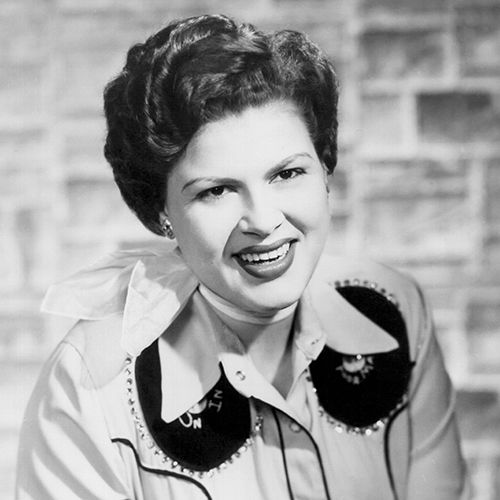Patsy Cline’s rendition of “Walking After Midnight” stands as a timeless emblem of yearning and introspection in music history. Released in 1957, amidst the burgeoning landscape of rock and roll and country music fusion, Cline’s interpretation of the song not only marked a significant moment in her career but also resonated deeply with audiences then and continues to do so today.
The song itself unfolds like a narrative of wandering and searching. Cline’s velvety voice paints a vivid picture of a protagonist walking under the moonlight, driven by a restless heart and a yearning for connection. The lyrics, penned by Alan Block and Donn Hecht, capture the essence of loneliness and longing with poignant simplicity, creating a universal appeal that transcends time.

Cline’s vocal delivery in “Walking After Midnight” is characterized by its emotive depth and subtle nuances, effortlessly conveying the complex emotions of loneliness, longing, and quiet determination. Her ability to infuse each note with sincerity and vulnerability allows listeners to empathize with the protagonist’s journey through the night, seeking solace and companionship amidst solitude.
The song’s enduring popularity can be attributed not only to Cline’s exceptional vocal talent but also to its timeless themes and evocative melody. It has been covered by numerous artists over the years, yet Cline’s rendition remains the definitive version that captures the melancholic beauty of lost love and the timeless allure of late-night introspection.
Decades after its initial release, “Walking After Midnight” continues to resonate with listeners of all ages, serving as a poignant reminder of the universal human experience of longing and the solace found in music. Patsy Cline’s interpretation stands as a testament to her enduring legacy as a trailblazing artist whose emotive performances continue to touch hearts and inspire generations of music lovers worldwide.









